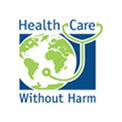1 in 5 deaths linked to fossil fuel pollution
Harvard study findings should spur rapid action

A recent study from Harvard University, in collaboration with the University of Birmingham, the University of Leicester, and University College London, continues to reinforce the message we must no longer ignore: we are paying to use fossil fuels with our lives and our health, and our most vulnerable populations are suffering at higher rates.
The study found that one in five deaths can be attributed to fossil fuel air pollution. According to this new research, more than 8 million people worldwide died in 2018 from fossil fuel air pollution, including over 350,000 people in the United States — numbers significantly higher than previously suggested by other studies.
Pollution from extracting and burning fossil fuels is linked to an array of health impacts, including respiratory problems, neurological damage, heart attacks, cancer, premature death, and other serious problems. These health impacts are not distributed equally. Children, older people, pregnant women, and low-income communities and communities of color experience disproportionate health effects from air pollution. Fossil fuels are also the leading driver of the climate crisis. Climate action will reduce illness and death from both air pollution and climate change.
The convergence of COVID-19 and the climate crisis has highlighted the health care sector’s role in responding to these crises and the opportunities to mitigate their negative health impacts. Globally, health care is responsible for 4.4% of net global climate emissions. Here in the United States, the health care sector makes up 8.5% of the country’s emissions with the highest per capita emissions of any country. The good news is that a number of hospital systems are operationalizing climate solutions, and medical organizations like the American Medical Association have passed resolutions to divest from fossil fuels. Health institutions from across the country have joined over 1,400 U.S. cities, states, tribes, businesses, and higher education, faith, and cultural institutions to call for a national mobilization on climate action and clean recovery.
We’ve seen encouraging action and leadership from the incoming Biden-Harris administration. From the first day of his presidency through the following week, President Biden issued several executive orders and actions to address the climate crisis and protect public health. This included rejoining the Paris Agreement, revoking the Keystone XL Pipeline permit, and launching a review of national standards including vehicle pollution standards and methane pollution from oil and gas.
Along with reaffirming a U.S. target of net-zero emissions economy-wide by no later than 2050, the president announced a coordinated, government-wide approach to lead by example to achieve these targets — including procurement of carbon-pollution free electricity by 2035 and zero-emission vehicles for government fleets. All federal agencies were directed to eliminate federal funding of fossil fuel subsidies and prioritize federal investment in clean energy technology. The U.S. Department of Health and Human Services was directed to set up a new office of Climate Change and Health Equity, establish an Interagency Working Group to decrease the risks of climate change to vulnerable populations, and establish a biennial Health Care System Readiness Advisory Council. These actions will be critical for achieving health care sector decarbonization and resilience.
Just as the Paris Agreement brought all nations together to fight the climate crisis, we must join together in the health care sector to advocate for a rapid and just transition to a low-carbon economy that protects the health of all people, creates jobs, and promotes equity.
We will achieve immediate health benefits from cleaner air as well as the longer-term health and societal benefits related to climate stabilization. The pace at which oil, gas, and coal start declining in this decade will determine global success or failure in meeting the Paris Agreement’s goals.
If you work for a hospital or health system, or if you are a health care professional, it’s easy to join the movement for a healthier climate. Join Health Care Without Harm and our global partners in creating a more sustainable and resilient health care sector and a healthier future for all.
For a global perspective, read Gary Cohen president and co-founder of Health Care Without Harm’s co-authored Thomson Reuters Foundation News opinion piece with Dr. Arvind Kumar, founder and managing trustee at Lung Care Foundation.
